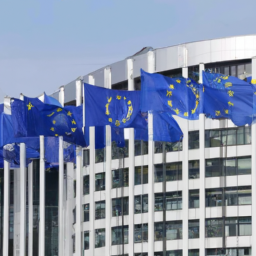The European Union is holding firm in the face of the war in Ukraine—perhaps better than expected. As the conflict continues to escalate, the EU has managed to maintain a united front and take decisive actions to support Ukraine while also engaging in diplomatic efforts to find a peaceful resolution. However, the question remains: what long-term effects will the war have on the European Union?
The war in Ukraine has already had significant consequences for the EU. One of the most immediate effects has been the strain it has put on EU-Russia relations. The conflict has highlighted the deep divisions between the two sides and has led to the imposition of economic sanctions on Russia by the EU. These sanctions have had a negative impact on trade and investment between the EU and Russia, but the EU has remained steadfast in its commitment to supporting Ukraine.
Another consequence of the war is the increased focus on defense and security within the EU. The conflict has exposed vulnerabilities in Europe's defense capabilities and has prompted a reevaluation of the EU's security strategy. There have been calls for greater cooperation and integration in the areas of defense and intelligence sharing, as well as increased defense spending by EU member states.
The war in Ukraine has also raised questions about the EU's enlargement policy. The conflict has highlighted the challenges of integrating new member states and has led to a more cautious approach towards further enlargement. Some EU member states have expressed concerns about the potential security risks associated with admitting countries that have unresolved territorial disputes or are in close proximity to conflict zones.
Furthermore, the war has had economic implications for the EU. The conflict has disrupted trade routes and supply chains, leading to higher prices and shortages of certain goods. The EU has had to provide financial assistance to Ukraine to help stabilize its economy and support its recovery efforts. This has put additional strain on the EU budget and has led to debates about the allocation of resources within the union.
In addition to these immediate effects, the war in Ukraine has also had long-term implications for the EU's role in the international arena. The conflict has challenged the EU's ability to act as a global player and has raised questions about its effectiveness as a mediator and peacekeeper. It has also highlighted the need for the EU to strengthen its diplomatic capabilities and develop a more coherent foreign policy.
Overall, while the EU has shown resilience in the face of the war in Ukraine, the long-term effects remain uncertain. The conflict has tested the EU's unity, exposed vulnerabilities, and raised important questions about its future direction. As the war continues to unfold, the EU will need to navigate these challenges and adapt its policies to ensure its stability and effectiveness in the years to come.
